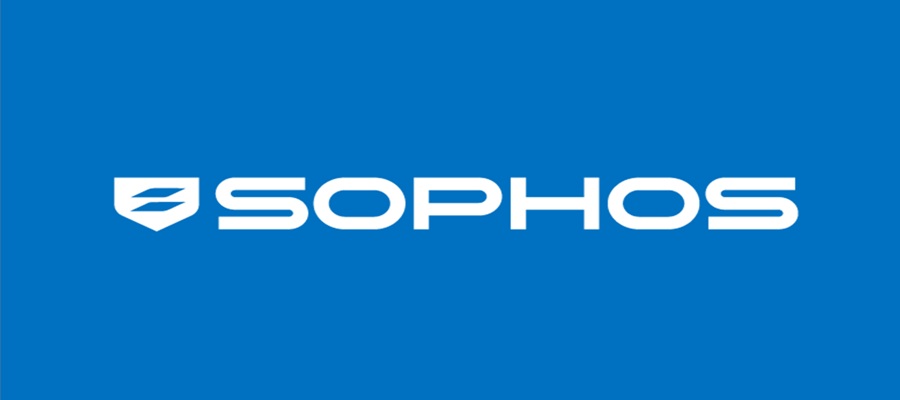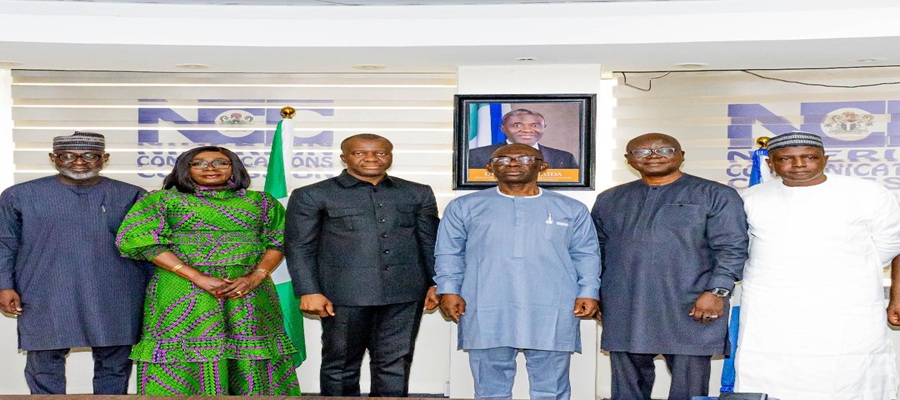Telecom
Smartphones Shipment Volumes Decline by 0.5% in 2017, but Growth Expected to Return in 2018 – IDC

International Data Corporation (IDC) Worldwide Quarterly Mobile Phone Tracker report, shows that, worldwide Smartphone shipments declined by 0.5% in 2017, the first year-over-year decline the market has experienced since the introduction of what we now know as smartphones.
Smartphone companies shipped a total of 1.46 billion devices in 2017 with nearly all of that volume running either the Android or iOS platforms.
Looking forward, IDC expects shipment volumes to return to low single-digit growth in 2018 and the overall market to experience a compound annual growth rate (CAGR) of 2.8% over the 2017-2022 forecast period with volumes forecast to reach 1.68 billion units in 2022.
Ryan Reith, program vice president with IDC’s Worldwide Quarterly Mobile Device Trackers, said “2017 turned out to be the year we all knew would eventually come – when smartphone volumes finally experienced a contraction.”
“That fact that China alone declined almost 5% in 2017 was a huge factor for why global volumes fell, but EMEA also declined 3.5%, and the U.S. market was flat.
“In our opinion, areas for growth have not changed. Developing markets still have plenty of room for build out, led by first-time buyers.
“And the premium space will continue to represent roughly 20% of the market. However, competition will continue to tighten and consolidation is inevitable.”
Design innovation continues to be a focal point of the industry, yet technology advances are becoming less about tangible hardware aesthetics and more about components and software.
This shift makes differentiation a challenge, especially as the entire industry is sprinting towards bigger screens and smaller bezels.
IDC expects 2018 to be the year when phablets outship regular smartphones, essentially ending the race for bigger screens.
Big differences in quality and display type still exist, but the average consumer will continue to struggle to understand these differences.
So, what’s next? 5G momentum is in full swing and device OEMs, component suppliers, telcos, and services companies are all looking to capitalize.
IDC expects commercial 5G smartphones to hit the market in 2019, ramping up to account for roughly 18% of worldwide shipments by 2022.
Anthony Scarsella, research manager with IDC’s Worldwide Quarterly Mobile Phone Tracker, said“ To keep up with the increasing demand for the new AI, AR/VR, contextually aware, and 5G functionalities headed to the market, we expect growth to come from improvements in overall core functions in the near term,”
“Improvements in speed, power, battery life, and general performance will be critical in driving growth at a worldwide level as the smartphone evolves into a true all-in-one tool.
“Although these types of improvements seem to arrive each year, delivering it more affordably will carry even greater significance to consumers as many highly competitive emerging markets remain crucial in driving growth throughout the forecast period.”
Platform Highlights shows that android Volumes were essentially flat in 2017, with OEMs shipping a total of 1.24 billion handsets running Google’s OS.
After years of vendors customizing Android’s OS to put their UI spin on things, we are finally hitting a point where everyone is pivoting back to stock Android.
This is an initiative that Google has been pushing for quite some time as the standardization on software can bring faster updates, minimize consumer confusion, and potentially allow Google to gain back some control of the platform.
The biggest change for Android devices in 2017 was that average selling prices (ASPs) grew for the first time since 2010.
This is largely due to the low-end players migrating their portfolios upstream toward mid-tier pricing.
Consumers have gone along with this trend, although many low-end buyers have grown increasingly frustrated with the poor battery and performance issues experienced on the device after just months of use.
iOS: Coming off of the first year-over-year decline in iPhone shipments in 2016, Apple returned to growth in 2017 albeit only 0.2%.
Apple shipped 215.8 million iPhones in 2017 with 64% of those coming from ‘Plus’-size iPhones (including the X).
The shift to bigger, more expensive devices has allowed Apple to continue to grow its ASPs while simlutaneously facing the challenges of growing its shipment volumes.
IDC expects iPhone shipments to grow 3.7% to 223.8 million units in 2018 and reaching 242.4 million in 2022.
Overall iPhone volumes are expected to grow at a five-year CAGR of 2.4%. Apple will continue to experience challenges breaking into some of the remaining high-growth developing markets, but there is no question they are far from being pushed out of the premium market segment.
Apple continues to build out its device upgrade program, a move IDC believes could be a catalyst to support growth over the next five years.
Telecom
Safer Internet Day: Sophos Warns – 42% Attacks Hit Stolen Logins in 2025

Sophos, a leading provider of innovative cybersecurity solutions, shared practical advice to help internet users safeguard their credentials and maintain continuous protection online.

Sophos
According to the upcoming Sophos Active Adversary Report, compromised credentials were the leading cause of attacks (42.06%) in 2025.
This is a strong trend that continues to dominate the scene, with cyber attackers demonstrating ever-increasing ingenuity and relying on new tools to compromise the security and privacy of internet users.
John Shier, Field CISO Threat Intelligence at Sophos, said: “The way attackers are using automation and generative AI to massively increase the speed and volume of their attacks suggests that attacks will become faster and more sophisticated. The best approach to protecting our identities and digital data is to take a proactive stance on defense.”
“Criminals are increasingly targeting people rather than devices, and this trend is expected to continue and even accelerate. Once again, AI is being used as a weapon to create highly detailed phishing lures to entice people to disclose passwords or financial information through well-designed emails, text messages, and WhatsApp messages.”
1. Keep your devices up to date: the most important and simplest measure you can take to protect yourself in the long term.
Cybercriminals are constantly on the lookout for computers that don’t have all the latest security patches, making them easy targets for compromise. This includes computers, laptops, smartphones, tablets, and home Internet/Wi-Fi routers. In most cases, you just need to click “Check for Updates” or “Update Now” and allow the device to restart.
2. Use a password management tool, whether it is built into an operating system or a third-party tool.
Password uniqueness and complexity are then managed automatically, greatly facilitating account isolation and protection.
3. Enhance protection with phishing resistant (MFA).
Many websites offer the option of using an “authentication app,” a smartphone app that displays a unique code for a short period of time, which must be entered after the password, making it much more secure than simply using a password.
Better still, there is a new solution called “passkeys,” which generally uses biometric authentication on your smartphone (face scan, fingerprint) to log in without any password. This is the best choice when available.
John Shier concludes: “Criminals will never stop trying to steal from us, so we must remain vigilant. We know that they are constantly improving and becoming more skilled at deceiving us, so it’s up to us to move forward and improve our protections to stay safe.”
For more information, please visit: https://www.sophos.com
Telecom
Webb Fontaine Unveils AI Customs Revolution at WCO Abu Dhabi Summit

Webb Fontaine has launched Webb Fontaine Zerø, a groundbreaking AI-powered Customs platform, at the 2026 WCO Technology Conference in Abu Dhabi, drawing over 1,500 delegates from 100+ countries.

Webb Fontaine
CEO Alioune Ciss unveiled the LLM-based concept during the keynote, calling it a “complete reset” from legacy systems – embedding AI across operations for real-time regulatory adaptation, risk management, and trade facilitation under the theme “Customs Agility in a Complex World.”
CTO Ara Shamirzayan led panels on AI risk analytics, while GM Anicet Houngbo moderated border digitalization talks showcasing emerging market successes.
The firm’s stand hosted Zerø demos, interactive sessions, and a sponsored gala dinner, reinforcing WCO ties via SAFE Framework and PSCG contributions.
Webb Fontaine eyes global partnerships to deploy agile, future-proof Customs tech amid rising trade demands.
Telecom
NCC Committed to Regional Digital Integration – Maida


L-R – Engr. Aliyu Yusuf Aboki , Executive Secretary WATRA; Mrs Nneena Ukoa, Head Public Affairs, Nigerian Communications Commission; Hon. Clarence K. Massaquoi, Chairman Board of Commissioners, Liberia Telecommunications Authority; Kelechi Nwankwo, Director Corporate planning, strategy and Risk Management(NCC); Hon. Ben Fofana, Commissioner with oversight responsibility for Licensing and Regulation (LTA); Usman Mamman Director, Licensing & Authorization (NCC) during a courtesy visit to the Commission’s Headquarters in Abuja on 30th January, 2026.

 E-Financial2 days ago
E-Financial2 days agoAlawuba Advocates Security, Bankable Projects, Infrastructure Development to Promote South-East Vision

 Telecom1 day ago
Telecom1 day agoNCC Committed to Regional Digital Integration – Maida

 E-Financial1 day ago
E-Financial1 day agoCBN Expresses Concern Over Foreign Investments in Nigeria Fintechs

 General News1 day ago
General News1 day agoIndigenous Firm Deploys 400,000 Smart Electricity Meters in 2025

 E-Financial1 day ago
E-Financial1 day agoBOI Secures CBN Nod for Sharia Banking, Unlocks Ethical Funding Boom

 Telecom1 day ago
Telecom1 day agoITU Top Director Visits NITDA, Boosts Nigeria’s Digital Literacy Push

 E-Financial1 day ago
E-Financial1 day agoUBA’s Easy and Instant Account Opening Thrills Returnee

 News1 day ago
News1 day agoEFInA Unveils Research Fellowship Programme to Deepen Financial Inclusion Impact



























